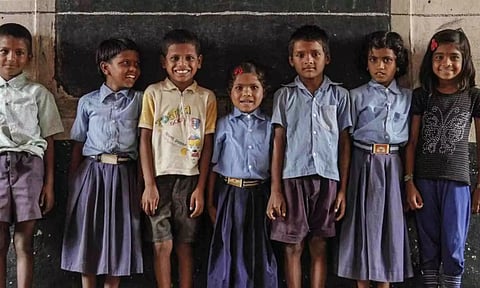

NEW DELHI: Children under 5 years of age in India, living at higher altitudes over 2,000 metres above sea level- - may be at about 40 per cent higher risk of stunted growth, according to a study on Friday.
The study, published in BMJ Nutrition Prevention & Health, showed that despite various initiatives, childhood stunting. caused by chronic malnutrition, remains a major public health challenge in India, affecting over a third of 5-year-olds.
"In recent decades public health interventions in India have effectively tackled previously prevalent nutritional problems, such as lodine deficiency, which are associated with living at higher altitudes," said Professor Sumantra Ray, Executive Director of the NNEdPro Global Institute for Food, Nutrition and Health, a think tank.
"But this study highlights the complexities of malnutrition in hilly regions where wider determinants of malnutrition among the under- 5s require further study to elucidate the relative contributions of heredity, environment, lifestyle, and socioeconomic factors," Ray added.
To explore further, the researchers drew on data from the 2015-16 National Family Health Survey (NFHS-4) on 167,555 children under the age of 5. About 1.4 per cent of kids lived between 1,000 and 1,999 m above sea level, and 0.2 per cent lived at or above 2,000 m.
Overall, stunting was seen among 36 per cent children, with a higher prevalence among those aged 18- 59 months (41 per cent) than among those under 18 months of age (27 per cent).
Stunting was also found to be more common among children of third or higher birth order (44 per cent) than it was among firstborns (30 per cent).
Stunting rates were even higher among those children who had been small or very small (45 per cent) at birth.
However, the study is "observational" and cannot confirm "altitude as a cause of stunting", said the researchers.
According to them, chronic exposure to high altitudes which can reduce appetite, restrict oxygen delivery to tissues, and limit nutrient absorption are reasons for stunted growth.
"Food insecurity also tends to be greater at higher elevations where crop yields are lower and the climate is harsher. Similarly, health care provision, including implementing nutritional
programmes, and health care access are also more challenging." they said.
The study showed that the
mother's education, proper antenatal care, such as clinic visits, tetanus vaccination, and iron and folic acid supplements; and proximity to health facilities acted
as protective factors against stunting.